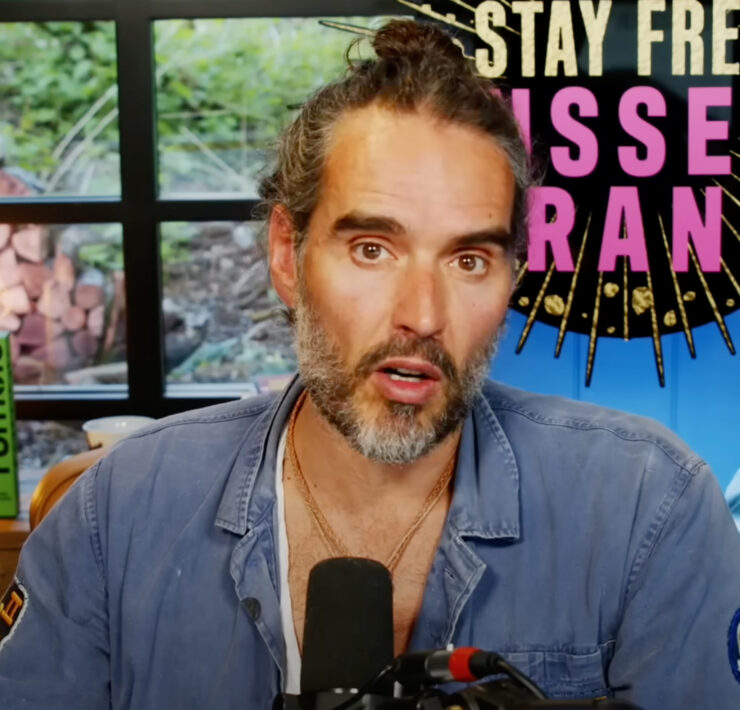Years ago, I learned an essential lesson that has application across every relationship: Becoming someone who can remain present to oneself and to another, especially in times of disagreement or distress, is one of the most important things we can do to become whole.
Some have called this lesson self-differentiation. For our purposes, let’s call it calm presence. (By it, I’m referring to self-differentiation.) It’s to be the natural outflow of a life that is marked by humility and contemplative prayer. It’s how love is formed in us.
I’m convinced that the most important skill needed in our world today is learning to cultivate calm presence. The cultivation of calm presence is the conscious and courageous decision to remain close and curious to ourselves and others in times of high anxiety. It’s a concept birthed out of family systems theory.
In the 1950s, a psychiatrist named Murray Bowen sought to understand the ways our families of origin shape our lives and our connection—or lack thereof—to the world. One of the core tenets of family systems theory is the natural tendency people have to anxiously attach to someone on the one hand and anxiously detach on the other. The respective forces of togetherness and individuality foster certain personal and interpersonal dynamics that hurt relationships. Songs are written all the time about this.
Cultivating Calm Presence: Examples from the Bible
There’s much we can learn from the Bible about cultivating calm presence. Although we won’t find a chapter and verse in the Bible that speaks directly to the concept, there are a few instances that serve as helpful examples. Let me highlight three of them.
David and Saul
The interaction between David and King Saul in 1 Samuel 17 is a wonderful case study in calm presence. David demonstrated closeness to himself and closeness to Saul in a time of extreme anxiety.
In this story, the Israelites were once again in a battle with their noted rivals, the Philistines. The Philistines had the renowned giant warrior Goliath on their side. Goliath mocked the warriors of Israel, trying to lure them into a gladiatorial battle. But no one from Israel was saying yes to this invitation. (I wouldn’t either.)
At this point, David, a young shepherd, came on the scene to deliver lunch to his brothers. As he distributed the cheese and bread, he overheard some of the soldiers of Israel. They reminded each other that whoever fought Goliath—and wins, of course—would receive great wealth, the king’s daughter in marriage, and exemption from paying taxes. David’s eyes grew large. He was willing to risk his life for this prize.
It’s at this point we see an important moment of calm presence. King Saul heard of this courageous teenager and wanted to help him succeed. He gave his armor to David for him to put on before fighting. David did so but soon realized that it didn’t fit. He prudently took it off and searched for stones to place in his slingshot. As everyone knows, he went on to defeat Goliath.
The armor-wearing moment is key for our purposes here. David didn’t mindlessly go the route of distancing himself from Saul in the name of individuality. He was not callous toward Saul but tried on the armor. It was an act of openness, curiosity, and humility. David stayed in good connection with Saul. But if David went to battle in Saul’s armor, he would have been slaughtered. So far, David had the “Remain close to others” part of calm presence down. But he also remained close to himself.
David had a history of fighting with his slingshot, so after trying on the armor, he realized that he stood a better chance if he fought the way in which he was accustomed. To remove Saul’s armor in front of everyone was a courageous act that could potentially embarrass Saul since David was rejecting Saul’s idea. But he was not controlled by the anxiety of the moment or by Saul’s attempt to help. He was thoughtful and decisive.
The story ended well (for David and Israel), but things don’t always look like this in the real world. Saul could have become defensive, angry, and embarrassed that David would take off his armor. Similarly, when we remain close to ourselves, in a principled, unanxious manner, the people around us might not respond well. But remember, calm presence is marked by low reactivity.
Aaron and Israel
In a less healthy example, Aaron, Moses’s brother, demonstrated the lack of calm presence. God told Moses to go up the mountain to receive clear instructions as to how the people of God were to be formed (see Exodus 24:12). While up there, the Ten Commandments were given. Moses was away from the people for about forty days. During that time, they got very anxious. Perhaps they were thinking that Moses lost his way. Maybe his phone ran out of batteries or he slipped and fell. (He was more than eighty years old, after all.)
In their anxiety, they went to Aaron, looking for leadership. They demanded a god they could worship and put their trust in. Aaron said, “Okay.” Just a few days prior, God had given them a command that said, “You shall not make any graven image; you shall not create an idol” (see 20:4). But anxiety will make you do some irrational things.
Aaron instructed the people to give to him their “gold earrings” (32:2). The gold rings were to be used for furnishing the Lord’s tabernacle as a home to the Lord’s presence with Israel. Instead, Aaron decided to bend to the people’s demands and use the gold to make a statue of a golden calf for them to worship (see verse 4).God heard about this and was furious.
Later on in the story, Moses approached his brother Aaron and said, “What did these people do to you, that you led them into such great sin?” (verse 21).
Aaron replied, in one of the more humorous responses in the Bible,
You know how prone these people are to evil. They said to me, “Make us gods who will go before us. . . .” So I told them, “Whoever has any gold jewelry, take it off.” Then they gave me the gold, and I threw it into the fire, and [boom!] out came this calf! (verses 22–24)
Aaron demonstrated anxious presence by his emotional fusion with the crowd. He was overtaken by their anxiety, leading to a serious lapse of judgment. He thoughtlessly acquiesced to their demands. Much of the conflict and lapses of judgment we experience are influenced by the anxiety of the system we are part of, whether it be a family, work, or church system. In the process, we don’t live from a discerning, whole place.
Jesus and the Crowds
No one cultivated calm presence better than Jesus. He remained close to the Father, himself, and others in times of great anxiety. Although he consistently made decisions that puzzled people around him, he never asserted himself without also remaining close to others. He was clear about his call but compassionate with those who didn’t understand, he was decisive in his decisions and forgiving toward those who couldn’t stomach his ways, and he was resolute in his truth telling but opened his heart to all. Yes, it is true that Jesus reserved some of his harshest criticism for the religious establishment for the ways they disregarded the poor, but even in his words of rebuke, he wept over a city that had not discerned the presence of God among them. We need his example to navigate the most difficult, polarizing issues of our day.
























